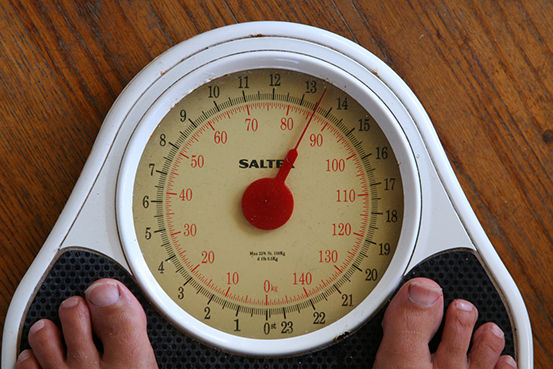By JoAnna Wendel
Editor’s Note: JoAnna Wendel is a guest columnist and University of Oregon research contributor that will be sharing her opinions on science and how it affects every-day life throughout the term. Any opinions she expresses are solely hers and are not necessarily held by the Ethos editorial staff.
My New Year’s Resolution is not special or unique. I want to go to the gym more and I want to eat less crap. I’m going to eat more salad and I’m going to exercise, and dammit, I’m going to like it.
My reasons are not motivated by vanity – I just want to be healthier. Last term there was a scary 48 hour period where I thought I could have type 2 diabetes (no worries, I’m fine!), so I decided to take a closer look at my eating and exercising habits and realized they needed to change. But in my quest to be healthy, I’ve encountered two very different reactions to this country’s obesity epidemic. One side is from medicine: “America, you are slowly becoming so fat and unhealthy that your quality of life is going to decrease.” The other side is a counter-attack from a Tumblr-esque subculture: “I can be fat if I want, and I don’t have to live up to your standards of beauty, you fat-phobic jerk.”
We live in a country full of contradictions. Alongside the aisles of candy, chips and cookies are magazines that show severely underweight and/or completely Photoshopped, thin models. This type of message is especially damaging towards young women. So while it’s no wonder that Americans are fat, there’s also no wonder there is a movement striving towards body and self acceptance. And while the latter is all well and good, I thought, doesn’t being overweight mean that you’re unhealthy?
It turns out, there’s more to health than just weight. First and foremost, being obese can lead to many health problems, such as hypertension, diabetes, heart disease and cancer, which we can all agree are terrible things. On the flip side, a recent study published in the Journal of the American Medical Association concluded that subjects with a BMI between the 25-30 range, which is labeled “overweight,” actually have a significantly lower mortality rate when compared to individuals in the “normal weight” category. This shows that weight and health are not necessarily connected, and there are ways in which the two are separate from each other.
One of those ways is physical activity. Humans evolved to move, to use up many calories hunting and gathering in order to consume just enough to survive. These days, because we’re surrounded by easily attainable calories, our sedentary lifestyles are killing us. Even those in the “normal” weight category. An overweight, active person is much healthier than a “normal weight” (according to BMI, 18-24.9), inactive person. An overweight person who has a balanced diet rich in fruits and vegetables is healthier than a normal weight person whose diet is full of salt and fat. However, a diet full of salt, sugar and fat generally lead to unhealthy weight gain (unless you’re like my older brother who could eat a tub of lard and not gain a pound). This can be remedied by more physical activity and a healthier diet.
So while weight isn’t necessarily indicative of one’s overall health, it can be a manifestation of it.
Body and self acceptance is something we should all be striving towards and harmful media stereotypes do not help. But no one should ignore or reject the consequences of obesity. The proportion of obese children is so high that this may be the first generation to live shorter lives than their parents. The fight against obesity has to be aggressive, but also sensitive, in its attack. How do we do this?
Bring recess back to schools, encourage kids to be active, take away their computers, their TVs, their video games and force them to eat their broccoli. Stop drinking soda. Stop eating pie for breakfast. Stop glorifying obesity with restaurants like the Heart Attack Grill, which encourages its customers to be obese. Start walking, running, swimming, gardening, playing kickball, skateboarding, boffing – whatever kind of physical activity makes you happy.
Thumbnail photo courtesy of Flickr User Puuikibeach
About the author: JoAnna Wendel is an Oregon native and a senior at the University of Oregon, studying General Science. She also contributes articles to the University’s research website. In her spare time, JoAnna reads books about space, watches too many episodes of the West Wing, and sometimes draws. Her current goal in life is to someday write the cover story for National Geographic magazine.
Categories:
Atomic Letters: Overweight and Healthy
January 30, 2013

0







